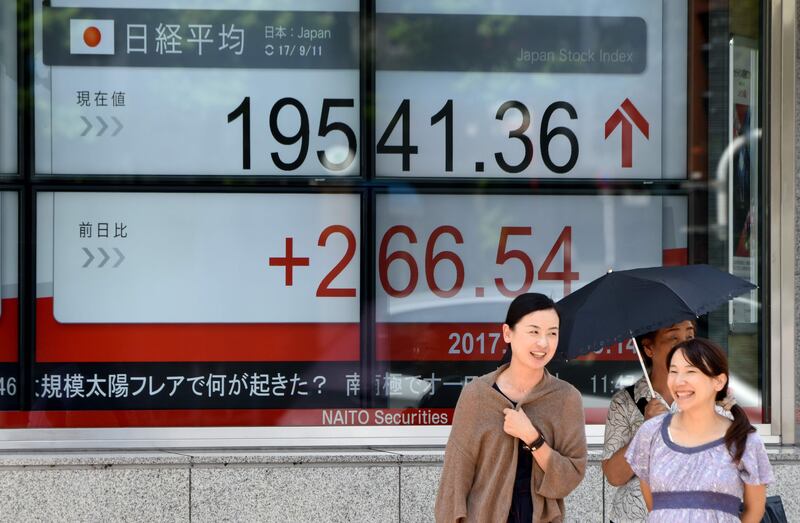Asian stocks rose and the dollar rebounded from its lowest in more than two years as hurricane Irma’s force waned and the United Nations prepared to vote on tougher North Korean sanctions.
Japan’s Topix index was headed for its biggest gain in more than three months as a weaker yen gave a boost to exporters. Equities also advanced in Seoul and Hong Kong, and Treasuries fell after North Korea refrained from an expected missile test at the weekend.
The dollar rose against major peers as Irma, while devastating, did not reach the feared Category 5 storm that some had anticipated and looked to have spared Miami to a greater extent. The offshore yuan declined after China’s central bank was said to have removed a reserve requirement on the trading of foreign-exchange forwards.
_______________
Read more:
US Fed vice chairman steps down early
The dollar is in for a rocky ride until the end of the year
_______________
Risk appetite also returned to the markets as the chances of US Federal Reserve interest rate increases this year receded after the US was struck by the first back-to-back major storms since 1964. New York Fed president William Dudley told CNBC that hurricanes could affect the timing of rate hikes.
Still, the shadow of North Korea remains. Pyongyang warned of retaliation if the United Nations security council approves harsher sanctions in response to the North’s nuclear test. The UN will vote on Monday on fresh sanctions, saying that Kim Jong Un’s nuclear programme poses the most serious threat since the Second World War. Pyongyang “is closely following the moves of the US with vigilance,” its state-run Korean Central News Agency said on Monday, citing a statement by the ministry of foreign affairs.
With Fed speakers now in a blackout period before next week’s policy meeting, the focus this week be on assessing the impact of natural disasters on US growth. Investors will also parse data due on retail spending in the American economy and the US consumer price index as inflation remains stubbornly low. US CPI is projected to have risen in August at a faster pace.






